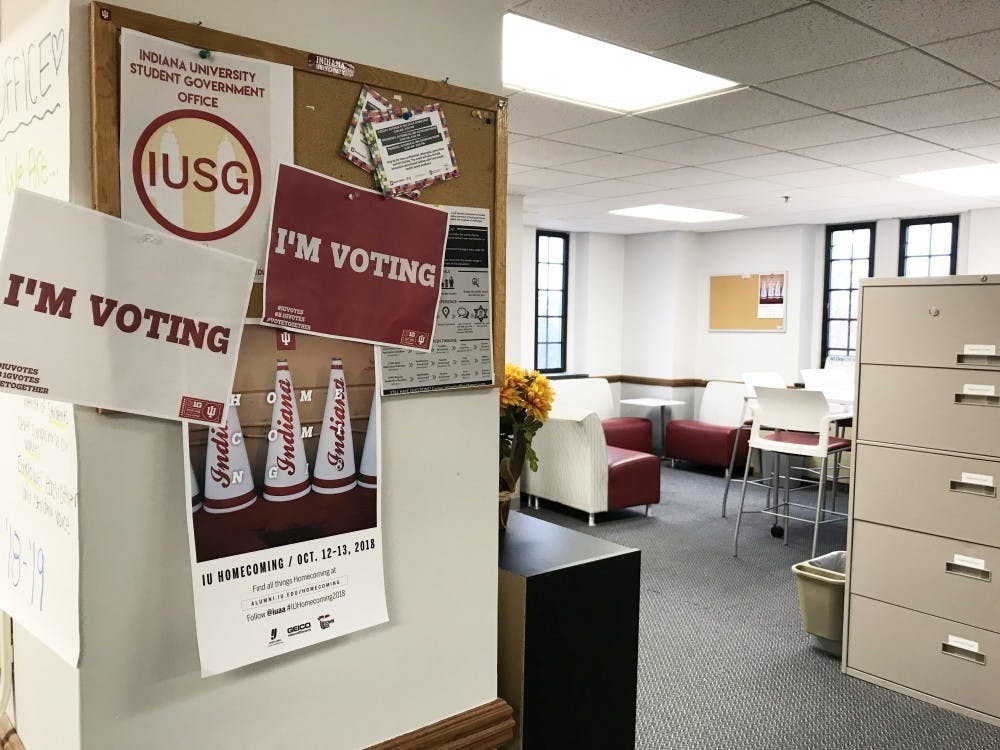IUSG will no longer be required to satisfy previous requirements for multicultural representation stating there is not a minimum number of seats that must be filled to be legitimate.
For a part of the constitution to be amended, Congress must have a two-thirds vote in favor of that amendment, which then will be voted on by the student body in an upcoming election or special referendum. The constitution can also be amended if 10% of the student body presents a petition to the Chief Justice of IUSG, according to the IUSG Constitution.
CECR2 was approved by IUSG Congress on Jan. 9 and will eliminate the required multicultural seats in Congress, change when multicultural organizations can apply for a congressional seat, require a congressional officer to provide multicultural groups with information about an admittance program and eliminate the concept of congressional legitimacy.
Before students voted on the amendment, congressional legitimacy was determined based on the number of representatives present for legislative meetings. A certain number of representatives needed to be present in order for any legislation to be passed. There are a total of 16 vacant seats that were not filled in the 2023 election, according to a record congressional meeting held on April 3.
Previously, the IUSG Constitution required 31 seats in Congress to represent multicultural groups on campus. Now, under the new amendment, there is no requirement for how many multicultural seats will need to be filled.
[Related: IGNITE announced as preliminary winner of IUSG presidential election]
In 2021, an amendment was passed making it mandatory for 31 seats to be saved for multicultural seats. Since then, there have been times when Congress has been illegitimate due to not being able to fill the required multicultural seats.
This has led to the new bylaws to make sure Congress can complete legislation, even when previously deemed illegitimate. Last year, the IUSG Supreme Court ruled that the executive branch could spend money even when Congress was illegitimate. Vacant seats have been a reoccurring issue for IUSG, which has led to changes in the constitution altering the notion of legitimacy.
New protocol for multicultural representation
Multicultural groups can now petition for seats in Congress if they miss the original deadline to apply for a seat. The deadlines are typically the first Monday of April or the first Monday of October. The amendment also states congressional officers must reach out through email to multicultural groups to provide information about eligibility.
“We’re hoping that by opening up a winter admittance program, that we are able to get some people when they are more established on campus and ready to take the plunge into something else,” Aiden Chism, former chairman of the finance committee and representative for off-campus housing for IUSG Congress, said.
In the past, some multicultural groups either did not apply or reach out to IUSG showing interest in filling in seats, Jack Tyndall, speaker of Congress said.
“Some multicultural organizations don’t really care for student government business and some we’re not able to reach out to,” Tyndall said.
Kaitlyn Wo, Asian American Association multicultural representative for IUSG, said when she first read the amendment, she was initially apprehensive because it seemed that IUSG would no longer focus on the recruitment process for multicultural groups. She is now optimistic about IUSG’s outreach to groups since it’s required for Congress to inform groups about the admittance program.
Wo said she felt some groups did not participate due to the perceived time commitment and lack of information about IUSG. Participation has been a struggle for IUSG regarding representatives in general not attending sessions. Wo said she thinks IUSG will be focused on recruiting more multicultural organizations in order to continue representing diverse voices on campus, after the affirmation of this amendment.
“There's a lot of multicultural organizations that I think if they had more information purely about what it is and the time commitment, I think they would be more willing to participate,” Wo said.
[Related: IU Student Government executive, legislative branch voting opens Tuesday morning]
However, Nisha Lalria, executive board member for digital design and graphic design for Sikh Student Association, believes the amendment will potentially limit the voices of multicultural groups. SSA is a multicultural group listed as a representative on the IUSG website but has a vacant seat due to their previous representative graduating this spring.
“It feels almost like it's closing off the opportunities people will have to voice their grievances,” Lalria said.
After the passing of CECR2, Lalria says she wants to continue advocating for underrepresented voices at IU by running for a representative position for IUSG in fall 2023.




